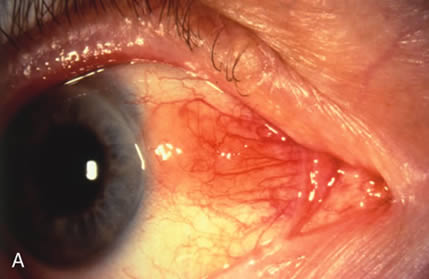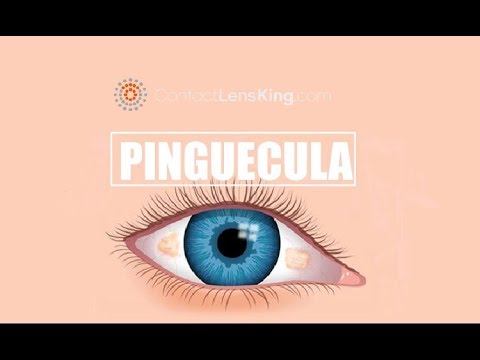
The most common pinguecula treatment is non-surgical removal with eye drops. Although pingueculae are not dangerous to the health of the eyes, the irritation and redness can be uncomfortable. If you are unable to wear protective eyewear, you can apply an ointment to reduce the irritation. If the symptoms are recurrent or severe, you may consider surgery. This option is usually reserved for people who suffer from severe discomfort or cosmetic concerns.
A pinguecula is a benign growth on the white part of the eye. It is not harmful and will not cause much discomfort. It may appear as a bump. If you notice that the growth is affecting your vision, you should consult an eye doctor to get a diagnosis. Your doctor may prescribe artificial tears or drops to add moisture to your eyes. Your doctor might also prescribe topical anti-inflammatory drugs or steroid eye drops to treat the inflammation.
A cold compress is also a good remedy for pinguecula. It involves placing a cloth soaked in cold water over the affected eye. The compress should be applied for twenty minutes at a time. You should also wear ski goggles if you spend long periods of time in the snow. These will protect your eyes from the harmful ultraviolet rays. If you want to get rid of the pinguecula without surgery, you can consult with a doctor.
A doctor will examine your eyes to identify whether you have pinguecula. The condition can cause discomfort and blurred vision, and it is important to get the diagnosis right away. In most cases, pinguecula can be cured with eye drops. Sometimes, a doctor will recommend surgery to remove the pterygium, but this is uncommon. A physician will recommend a combination of treatments, such as conjunctival grafting to remove the pinguecula.
A pinguecula is an irritated eyeball that is white and painful. Its symptoms can be itching, burning, and itching. In most cases, the pinguecula is harmless and does not cause pain, but it can be uncomfortable and cause vision problems. A doctor can remove the pterygium with surgery. In some cases, a patient may need to wear contact lenses. In other cases, the pinguecula can be removed with a laser, but it is often not necessary.

If you think you may have pinguecula, the best treatment is to avoid the sun. Since pinguecula is caused by exposure to sunlight, it is important to protect your eyes from the sun. A hat or sunglasses can help reduce the growth of pinguecula. However, you may not be able to wear these items on cloudy days. The best treatment is to take prescription eye drops.
The first thing you need to do to prevent pinguecula is to protect your eyes from sunlight. It is extremely important to protect your eyes from the sun. Wearing sunglasses with UV blocking filters can help prevent their development. If you have pinguecula, you should try to avoid exposing your eyes to the sun as much as possible. Wearing sunglasses or hats with UV protection can help you avoid sun exposure.
To prevent further inflammation of the pingueculum, you should wear sunglasses. Your doctor may also prescribe artificial tears or lubricating eye drops. These medications may help reduce the appearance and feel of the pingveculum. If the pinguecula is too large, it may need to be removed for cosmetic or comfort reasons. If you have pinguecula, your doctor will likely recommend steroid eye drops or topical anti-inflammatory medications.
If pinguecula is causing you discomfort, you should seek help from a doctor. Eye drops containing steroid ingredients may help relieve discomfort. These medications may also help reduce swelling. Surgery is the last resort for those who cannot tolerate steroid eye drops and want to completely remove the pinguecula. However, this is a rare option, and most people can easily treat this condition on their own with eye drops and advice on a health website HandalDok.
If symptoms of pinguecula appear, you should consult a doctor as soon as possible. It is important to address the problem immediately and as soon as possible to avoid permanent damage to your vision. If symptoms are severe, you should consult a doctor. Your eye doctor may prescribe eye drops to help relieve irritation and discomfort. If pinguecula does not affect your vision, you can take steroid drops or lubricating solutions.